
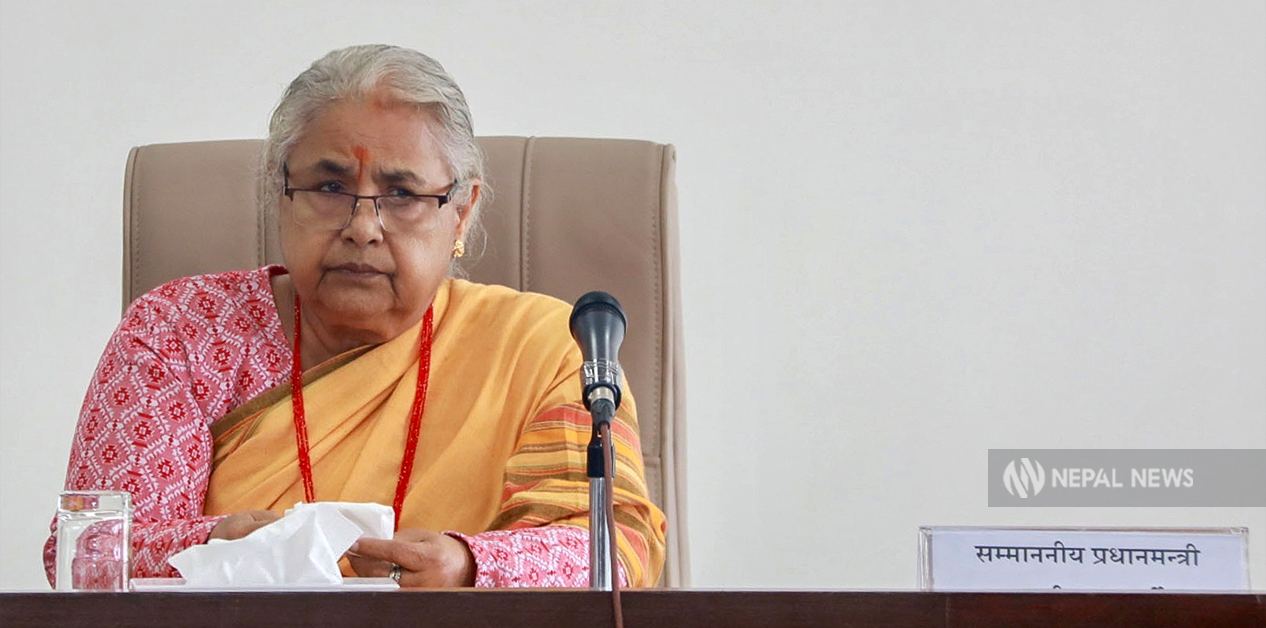
KATHMANDU: The country is currently on a critical journey following the Gen Z movement. The responsibility for steering this journey to its destination falls squarely on the Sushila Karki government.
The situation is so complex that if the government fails, the nation will lose. When the nation loses, no one wins. Therefore, it is crucial that all political forces recognize their success in the government’s success. Every citizen must reflect on the fact that the country cannot bear the burden of further instability. Likewise, the government has no luxury to delay or fail under any pretext. It must rise above personal bias and prejudice.
In this challenging time, the Sushila Karki government must pass the test in these four areas: Investigation, Election, Good Governance, and Constitution. The future condition and direction of the country will be determined by the government’s performance in these four areas.
Investigation
The incidents of human rights violations and atrocities that occurred on September 8 and 9, during the Gen Z movement have become a matter of serious international concern. The UN High Commissioner for Human Rights has called for investigation and accountability regarding the excessive use of force on September 8. The destructive events of September 9, are assessed not merely as a spontaneous reaction to the September 8, incident but as a pre-planned, organized action. This assessment is being made not just by us, but also by international media based on reliable research and analysis.
The state has a mandatory obligation to conduct a fair and effective investigation into these incidents, which the world has seen, heard, and expressed concern over, and to ensure accountability. The victim’s right to effective remedy under the Constitution and international human rights law must not be undermined in any way. The investigation must be ruthless. The state must not repeat the mistake of failing to uncover the truth and implement punishment.
Regrettably, questions are already being raised about the credibility of the investigation. Public criticism has begun due to apparent contradictions in the actions of the Ministry of Home Affairs. Questions have also been raised about the impartiality of some of the Commission of Inquiry’s actions and officials. Apprehensions are being voiced: that the investigation may not be independent and impartial, that it might become a mere formality like in the past, that the truth might be covered up, or that accountability might be avoided through a compromise between the September 8 and 9 incidents. It is necessary for the commission and the government’s subsequent actions to address these fears and ensure credibility.
The government’s job is to make the investigation impartial, independent, and effective. Populist moves aimed at showing immediate results could jeopardize the overall reliability of the investigation. The tendency to abandon legal process and resort to direct action, guided by the demands and pressures of Gen Z, will seriously undermine accountability in the long run. It erodes the credibility of investigation, research, and prosecution, and fosters impunity.
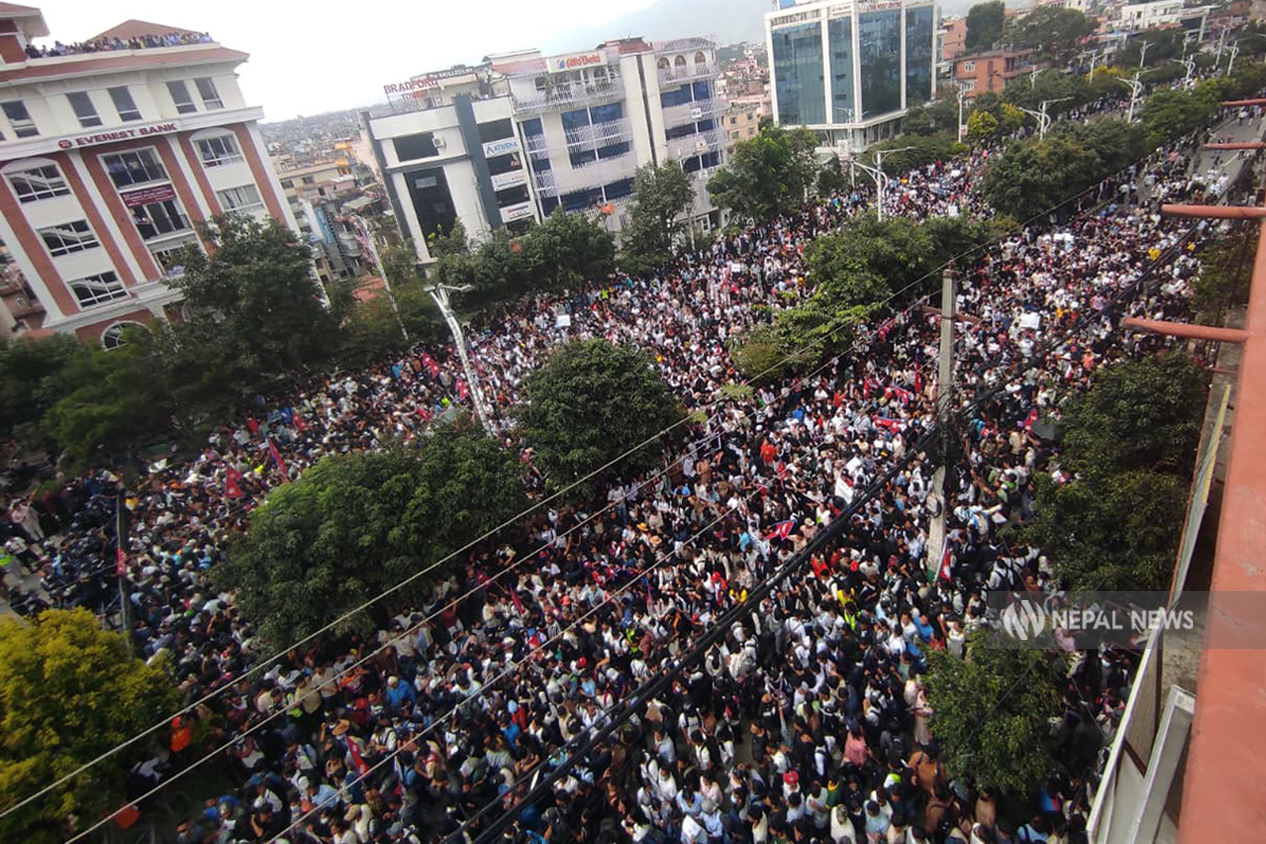
If a situation for an independent, fair, and effective investigation does not materialize within the country, and the investigation lacks credibility, it will invite internationalization. The government itself might even have to seek cooperation from the UN High Commissioner’s office for an independent investigation. For example, in Bangladesh, a panel of experts from the UN High Commissioner for Human Rights submitted an investigation report at the government’s request. Following this, efforts to prosecute Sheikh Hasina and her responsible ministers appear to be increasing.
The brutal use of force against Gen Z protestors on September 8 violated not just the Constitution and domestic laws, but also the limits of international law. Due to unnecessary, disproportionately excessive, and indiscriminate firing, 19 protestors were killed that day. Two more people later died from gunshot wounds sustained during the incident. Many were seriously injured. It is clear that a serious human rights violation occurred prima facie. There is no alternative but to hold all those involved accountable.
On September 9, horrific criminal acts took place across the country. Important government offices, private residences, media houses, schools, and commercial buildings, including heritage sites like Singha Durbar, the Parliament Building, and the Supreme Court Building that represent the country’s identity, were destroyed. Prisoners were broken out of jails. Irreplaceable damage was done by wiping out the existence of historical archives that embody the country’s identity.
It is necessary to understand that the nature of the destructive events on September 8 and 9 is different. It is necessary to understand the difference between a human rights violation and a criminal act perpetrated by non-state actors. The violators in the September 8 incident are state officials. Therefore, the violations arising from the excessive use of force primarily require the specialized investigation of the Commission of Inquiry. It is necessary to bring the police organization, its subordinate officers, and the administrative and political officials who gave orders and must bear responsibility under the scope of the investigation.
The incidents of September 9 are fundamentally criminal in nature, carried out by non-state actors. Investigation and action must proceed by understanding the difference between human rights violations and crime. However, the criminal incidents on the 9th also have a human rights violation dimension. Specifically, the state has a legal obligation to protect citizens’ lives and property from criminal excesses by a third party. An analysis is necessary to determine the extent to which security agencies failed in this duty. Why the right to personal security was not respected by the state, what the underlying reasons were, and whether the events were premeditated or spontaneous must be subject to investigation. The state cannot simply prepare a list of damages and avoid responsibility by saying, “This happens in an agitation.”
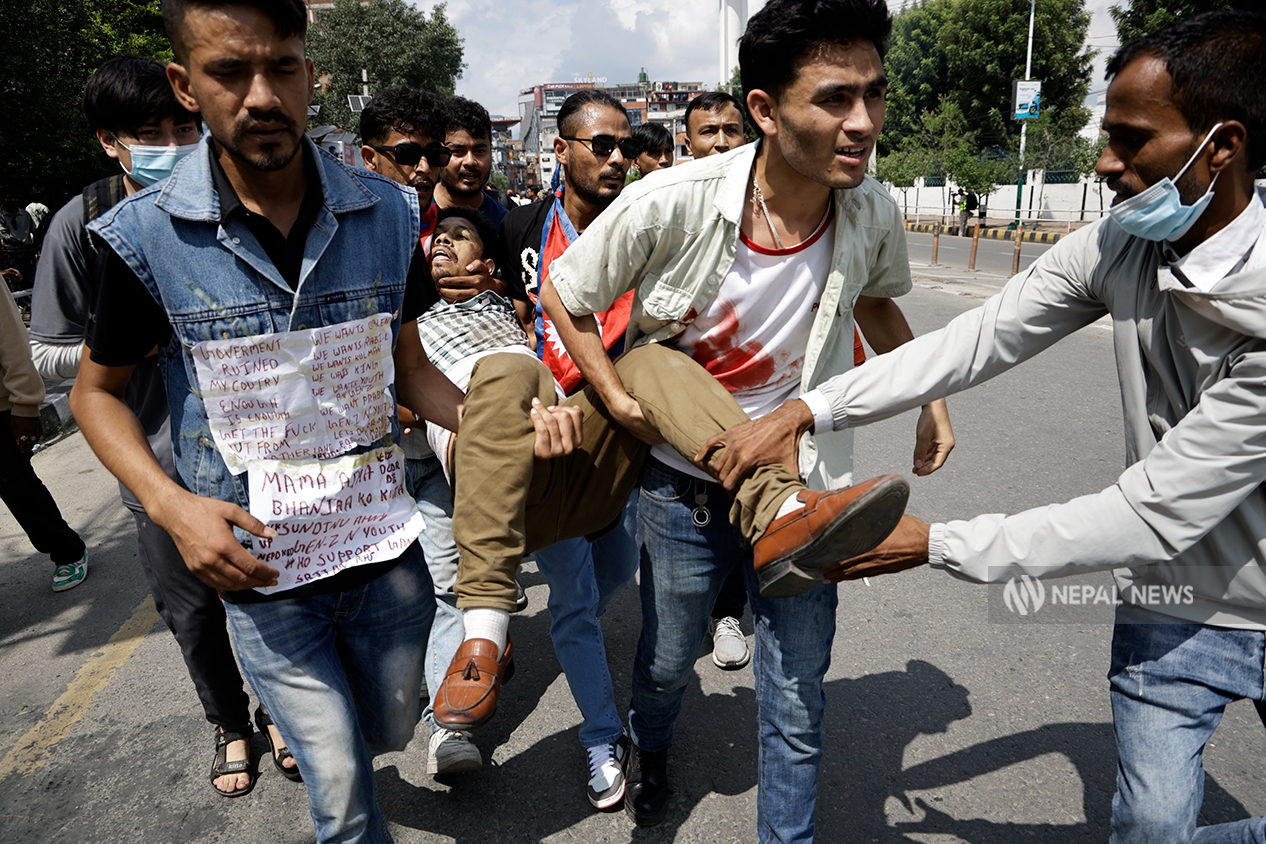
The Nepal Police itself is a witness to the crimes of the 9th. It possesses digital evidence and can obtain such evidence from others. The law empowers the police to initiate action against such crimes at any time. The Commission of Inquiry will look at the totality of the situation, draw conclusions, and evaluate the failure of the state, including the security agencies. It will also identify flaws in policy and legal provisions.
The role of the Nepal Army is also under scrutiny. The question of why the Army stood by as a spectator during the destruction on the 9th remains unanswered in the minds of many. The commission is also tasked with finding the answer to that.
A situation must be created where the public can feel the strong and credible presence of the state by holding the guilty accountable. The country must have the political will and capacity for the investigation and prosecution of serious human rights violations and atrocities. We must prevent a situation where internationalization becomes necessary to enforce accountability.
Undoubtedly, there are many elements who have long thrived on impunity. They are also dominant in Nepali politics. Thus, they wish to prevent the establishment of a precedent for accountability and keep the environment of impunity alive. However, we must be conscious that any failure in the context of investigation, research, and accountability will lead to the repetition of horrific incidents like those of September 8 and 9. Society will become anarchic and lawless. The country’s credibility will be lost. Economic investors are forced to flee a society without the rule of law. The prospects for the tourism business and foreign investment will diminish. We must be alert to potential damage while there is still time.
Election
A false narrative is currently being created about the election. It is being said, “Is mid-term election what Gen Z truly wanted? Elections were going to happen in 2027 AD anyway! This election will bring the same old leaders and parties back to power. It will all be much ado about nothing!”
This narrative repels Gen Z from the election. It seems to have deeply affected the psychology of some Gen Z groups. Some have not stopped demanding immediate constitutional amendments to introduce a provision for a directly elected executive. For them, it appears that system change has become paramount, while the Gen Z movement’s core issue of good governance has become secondary.
On the other hand, the anticipation that the movement would immediately trigger transformation efforts within the parties has not materialized. While the CPN (Maoist Centre) appears clear about going to the election, the UML and Congress lack clarity. Within the parties, efforts are being made to create an environment to restore the dissolved House of Representatives by raising questions about the interim government, dissolution of parliament, elections, and the investigation into the September 8 and 9 incidents, thereby making the election uncertain. The UML appears to have openly demanded the restoration of the House of Representatives and decided to appeal to the Supreme Court. There is no sign of self-correction or transformation among its top leadership.
In the changing context, it is crucial to challenge two extremist views: normalizing the election to undervalue it and challenging its legitimacy to bring back the old parliament. In reality, Gen-Z groups themselves must first be free from this confusion. They must understand the importance of the election. They must be able to assess the negative consequences of a failure to hold elections.
It was already evident from the local and federal elections that the people are not keen on traditional parties. They want alternative political parties and leadership with new thinking. The current Gen-Z movement has sent the message that dissatisfaction with the old guard is not just necessary but is the only option. This has created a huge shockwave in the social and political consciousness of society. The top leadership, who turned a blind eye to the people’s desire for change and continued playing ‘musical chairs’ by controlling party organizations and governance structures, has been politically penalized. We can be sure that the election on March 5, 2026, will not yield the same results as the regular election in 2027.
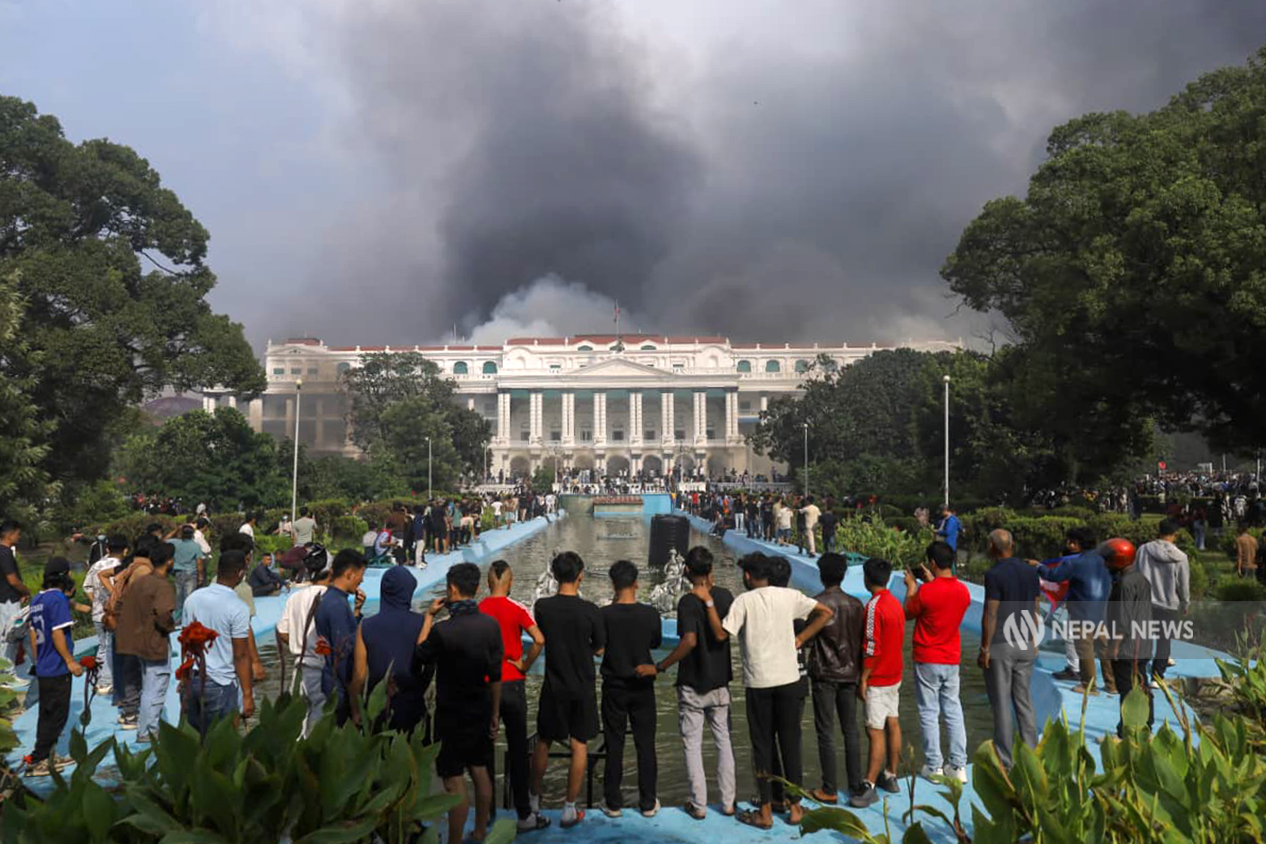
The parliament that will be formed now will not be an ordinary parliament. It will be a representative assembly commanding a power/mandate akin to a Constituent Assembly, tasked with discussing and resolving all the constitutional and systemic issues, as well as the socio-economic issues, that have surfaced. It is necessary to adopt the positive perspective that the judicious utilization of a publicly elected body will provide an important opportunity to facilitate constructive dialogue between new and old forces, update the Constitution through amendment, and pave the way to address the problems of people suffering from bad governance, discrimination, and exclusion.
Everyone must understand that elections are the only potent remedy we currently possess to sideline extremist views, promote the collective interest of the nation and its people, and put an end to instability and confusion. Therefore, it is a crucial priority for the citizen’s government to honestly work toward creating an environment for the election. To achieve this, the government itself must take the lead in boosting dialogue among stakeholders and preparing a nationwide public mindset for the election.
However, the government itself seems to be confused. It does not appear to be engaging in open discussions and consultations with stakeholders. A fear is prevalent that the government is being guided solely by a certain power or interest group. The government must not delay in quashing this suspicion. It must increase dialogue with everyone, setting aside bias and prejudice. Civil society, the private and business sectors, the international community, and UN bodies can all play an important role in creating an environment for the election. Cooperation should be sought from everyone. If the government demonstrates self-confidence and dedication towards the election and publicizes a roadmap for holding peaceful and fear-free elections, the stakeholders’ psychology will adapt accordingly.
The role of civil society and the media must be distinct from the normal state of affairs. All stakeholders must view the election as a ‘mission’. We must understand that ‘mission journalism’ is required in support of the election. Therefore, the media must protect itself and the public from the anti-election narrative.
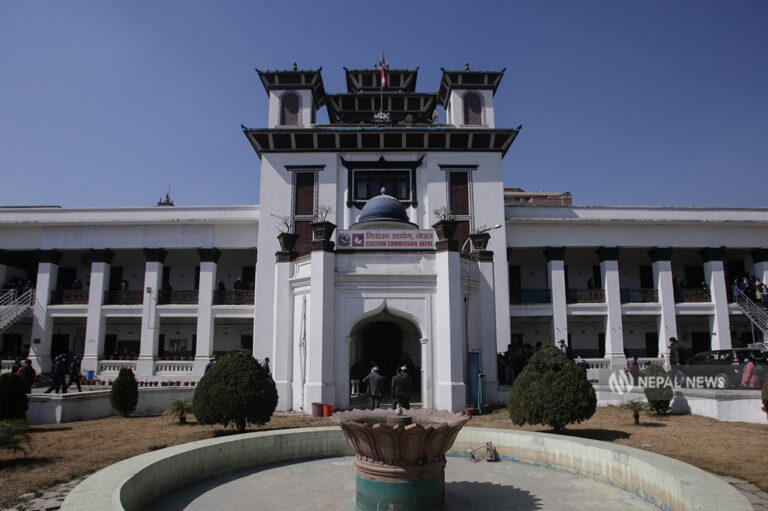
Good Governance
It is clear that good governance is the spirit of the Constitution. It is also the main mandate of the Gen Z movement. Good governance is the basis for the government’s legitimacy. Therefore, the government itself must not fall short of the principles of good governance. Past corruption must be brought under investigation, and zero tolerance must be established in practice. Failure to do so is to trample upon the dreams of the Gen Z martyrs.
Corruption has become a chronic disease in our country, from top to bottom. It is necessary to address it systemically, not just symptomatically. The government may not be fully successful in doing so, but it can lay the foundation. It can establish some positive precedents. In this context, the major challenge for the government is the credibility and effectiveness of the officials of the Commission for the Investigation of Abuse of Authority (CIAA). In the absence of Parliament, there is no possibility of removing the CIAA officials. There is also no chance of immediately establishing an institution to replace the CIAA. In this situation, the government appears to have adopted a ‘do or resign’ policy. This implies that the government feels compelled to show some results even through the current officials. In the changed context, the CIAA officials could have helped the government by opting for voluntary resignation, but that symptom has not appeared.
It is not that the government lacks ample grounds to work on good governance even under the current Constitution. However, the President should not obstruct the issuance of ordinances for this purpose; rather, she should facilitate it. Since this is the core spirit of the movement and the goal of the Constitution, tying the government’s hands would be wrong. Ordinances issued on necessary subjects can acquire the sustainable form of law later. For example, even the Good Governance (Management and Operation) Ordinance, 2005, issued during the then King Gyanendra’s direct rule, was given the form of an act by the Parliament in 2007.
The legal roots of policy-level corruption are still present today. There is no need to wait for Parliament to cut them by amending laws. For example, Section 4(b) of the CIAA Act, 1991 AD, excludes policy decisions made by the federal Council of Ministers and its committees from the Commission’s investigation. It appears that many former Prime Ministers were exempted in numerous scandals in the past by citing this provision. Both the Parliament and the Supreme Court failed to amend this law. Now is the time to uproot and discard it. An equitable use of the ordinance power can be utilized for this. By bringing policy-level corruption scandals committed by past Cabinets under the scope of investigation, the state of impunity can be ended.
Based on Article 87(1)(d) of the Constitution, which states that individuals ‘not disqualified by any federal law’ can be members of the House of Representatives, the House of Representatives Member Election Act can be amended. A provision can be made to disqualify a candidate if there is a credible basis for their involvement in corruption. This reduces the possibility of a bad individual being elected against the Gen Z expectation.
Additionally, in the context of candidate selection, the law can be amended to compel parties to adopt democratic methods and processes. Sections 18 and 19 of the House of Representatives Member Election Act, 2017, can be amended to democratize the candidate selection process of the parties. The system where leaders issue tickets can be abolished. A system where party members within the concerned constituency can participate in a primary election and vote for candidate selection can be established. Such a selection increases loyalty toward the voters and the public, not toward the leader who issued the ticket.
How to make the party’s organizational structure inclusive is also a strategic issue. Section 15 of the Political Parties Act mandates that at least one-third of the members in party committees must be women. Besides that, there is a provision for selecting members based on diversity and proportional inclusivity. In line with the spirit of the Gen Z movement, youth can be clearly defined (e.g., those under 30) to ensure a certain percentage (e.g., one-third) of representation from this age group in the party.
The Election Commission’s work has been limited to conducting elections. Continuous monitoring and regulation of the parties’ good governance and democratic practices seem to be absent. The Election Commission needs to correct its work style and system accordingly.
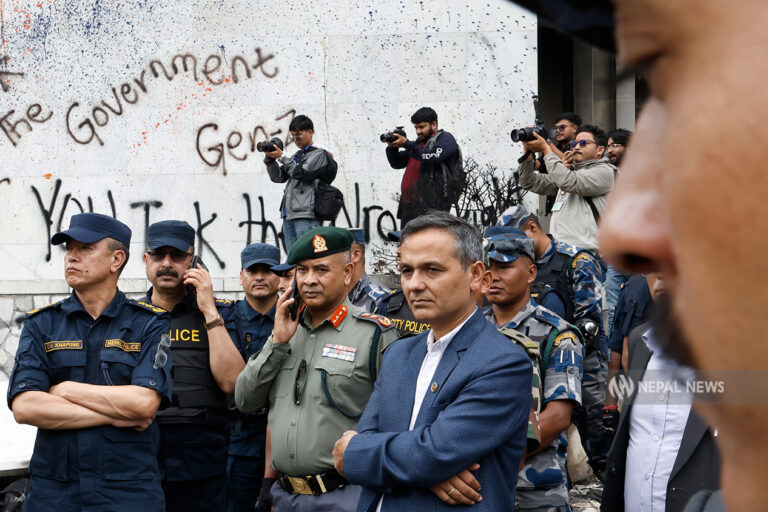
The constitutional appointment system based on power-sharing has become a major cause of bad governance. That is also why the credibility and effectiveness of constitutional bodies have declined. Even if past appointments based on power-sharing cannot be overturned now, legal provisions can be made to ensure the quality of future appointments. For example, mandatory study of the candidate’s background before appointment and a transparent selection process can be implemented.
In the past, most commission reports formed to find facts and hold everyone accountable were kept secret; not to mention the implementation of their recommendations. The government can publicize those reports. This will have a positive impact on the election as well. Those reports will prevent implicated individuals from being elected to Parliament. This promotes good governance.
While saying this, some of the government’s actions have appeared controversial. For example, the abolition of the Land Problem Resolution Commission. The abolition of the commission does not solve the problem; it appears to further disappoint genuine landless and squatter citizens who have suffered historical injustice. The commission was made necessary by the Constitution and the eighth amendment to the Land Act. If irregularities occurred in the name of the commission, they could have been investigated, and certain actions, including land distribution, could have been annulled. If any official created problems, they could have been removed.
The Ministry of Finance has canceled fragmented projects. However, if some of those projects were necessary to fulfill the economic and social needs of discriminated and marginalized communities, there might be a disproportionate negative effect. This should have been done only after an impact assessment.
In the context of good governance, the government’s scope of consultation appears to be extremely narrow. Dialogue and discussion with stakeholders on important issues seem to be absent. This appears to create problems with ownership.
Constitution
In a democracy, the Constitution is not shaped exactly as any one ruler, party, group, community, caste, region, or generation desires, because the Constitution is a document of compromise where everyone must be able to see themselves reflected. The Constitution must encompass the interests of all; whether someone likes it or not should not, and must not, affect its existence.
Currently, the tendency to criticize and disparage the Constitution is rampant. There is no shortage of those who ignore the value of the Constitution written by the people. The notion is spreading that it was easily written and can be easily torn up. Some even ask, “Is there a Constitution?” It is necessary to understand that this is not a Constitution made like the ones before. It is the product of the Nepali people exercising their sovereign rights. It is a document promulgated by the people and for the people, not given by a King or any other ruler. Whether one likes it or not, this historical truth must not be ignored.
The irony is that those who understand the value of this Constitution of social contract and wish to protect and develop it are labeled ‘regressive,’ while those who disparage it and abruptly seek to tear it up are crowned ‘revolutionaries.’ Voices are also heard arguing that since the Sushila Karki government was formed by violating the Constitution, why can’t anything else be done by violating it? The tendency to treat and accept an exception born out of historical necessity as a rule is utterly dangerous.
A Constitution written by the people can only be abolished or changed by the power of the people. If change is sought without collective wisdom, it will not be fruitful or sustainable. No one is currently in a position to claim the power to amend or replace the Constitution immediately. To deny this reality would be mere bravado.
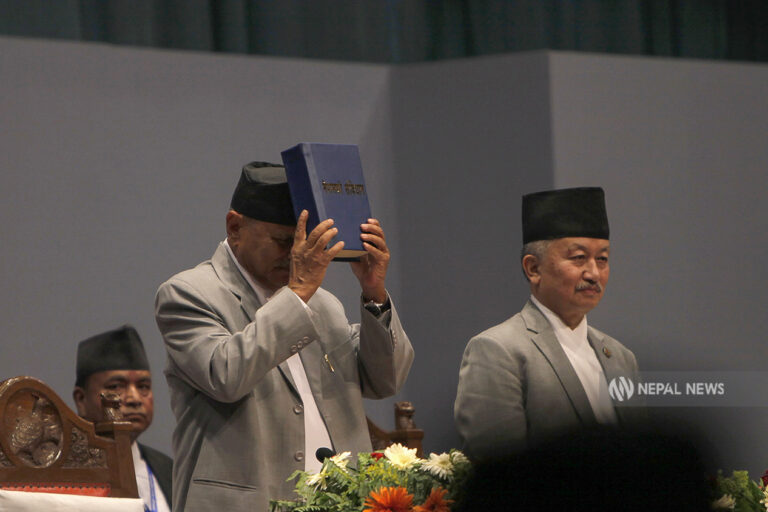
The Constitution has not betrayed the people; rather, the Constitution has been betrayed. The provisions related to ordinances, appointments, and the dissolution of Parliament have been repeatedly misused. Should we settle accounts with the betrayers or punish the Constitution itself? This is the question. All political forces, castes, classes, communities, geographies, and regions of Nepal must deeply consider whether the Gen Z movement was to overturn the eight-year-long document of social contract or to ensure that the terms of the contract are followed.
At the same time, the fact is that if good governance had been established according to the Constitution, the Gen Z movement would not have been necessary. Apart from Gen Z issues, there have been various questions and complaints regarding the Constitution since its promulgation. Was the widespread disappointment and dissatisfaction among the public during the ten-year implementation period due to flaws in implementation or is the Constitution itself flawed? Should the government ignore the demands, concerns, and interests raised by Gen Z and other citizens regarding the Constitution? Is there not a duty to appropriately ‘channelize’ these concerns and demands? These questions cannot be left unanswered. Along with Gen Z demands, there may be a need for changes in some terms of the social contract to make it timely. For this, the government must play the role of a facilitator and create an appropriate space and platform.
The one thing that the Gen Z movement has also directed and that everyone should accept is that the time has come for an independent evaluation of the Constitution. The Constitution itself has shown the way—through the amendment provision. If the Nepali Congress-UML led governments had initiated a legitimate constitutional review process as they promised in the past, the situation would have been different.
Prime Minister Sushila Karki’s recent address also outlined the limits of the government’s constitutional power. She clearly stated that the Constitution cannot be amended before the election, as an elected Parliament is required for amendments. That is a prudent and realistic view.
What the government can do now regarding the Constitution is to form a task force or commission composed of independent experts. The task force or commission can independently study the demands and voices raised. And, based on an objective evaluation of the diverse aspects of the Constitution, it can present a report including drafts and recommendations for implementation and modification. Then, the government and Parliament that come with a fresh mandate can initiate discussions among elected representatives based on the report to advance proposals for legal and constitutional reforms and amendments.
Whether to have a King instead of a President, whether to abolish the Provinces, or whether to adopt a direct executive system or maintain the parliamentary system—these issues must be decided by the collective wisdom of the people. No attempt should be made by anyone to forcibly impose decisions on the people in their name. Co-existence must be embraced. Otherwise, extremist debates and anarchic activities appear likely to dominate.
Senior advocate Chapagain is the coordinator of the Accountability Watch Committee.